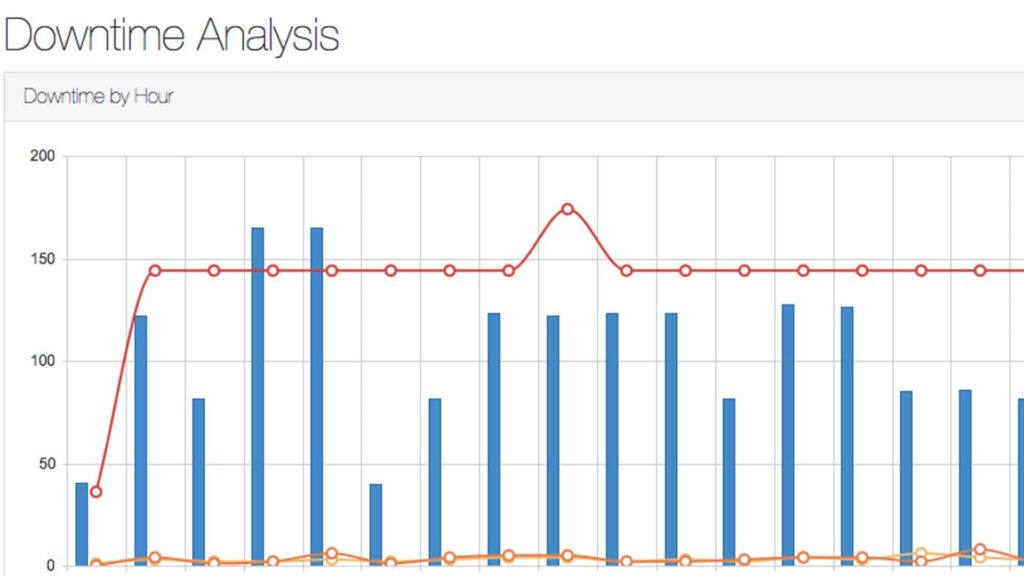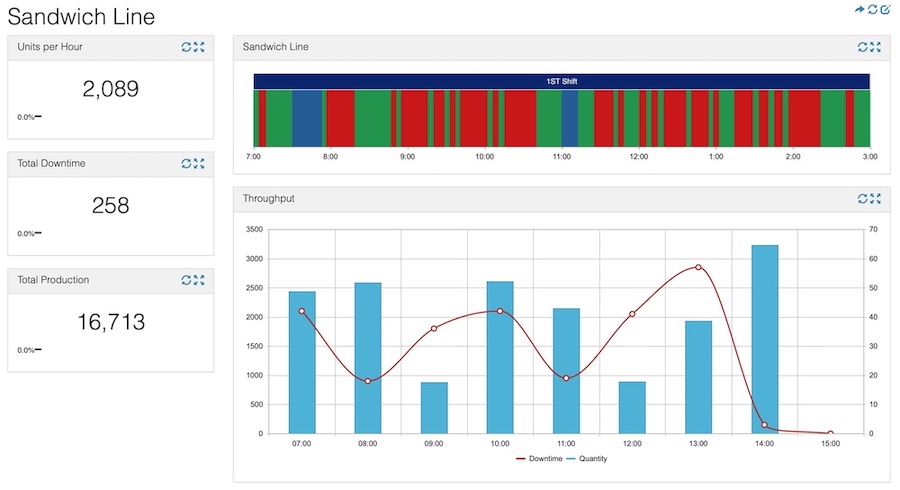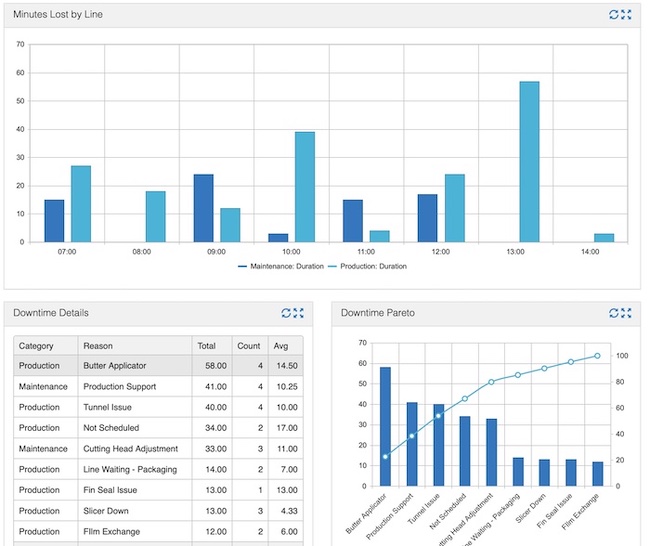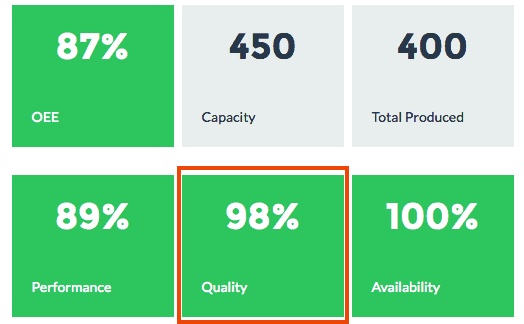Food manufacturers are faced with unique challenges. The business has to be able to run production so that it meets order volume while maintaining a consistently high-quality product. This means having a set of manufacturing KPIs that reflect these core principles and goals.
We’ve listed the top general KPIs in manufacturing before but wanted to provide some deeper insight into the best KPIs for food manufacturing companies and what data can be gathered to help impact those metrics.
Below, we’ll provide a list of the food manufacturing company KPIs and what kinds of dashboards and reports might be the most helpful when attempting to improve those measurements.
Learn about Real-Time Engagement in Food Processing Magazine »
Should Food Manufacturers Focus on Downtime Monitoring?
Yes, 100% yes. Downtime monitoring is important for food manufacturing companies. In general, downtime is a core KPI for most manufacturers. For food businesses, downtime metrics can provide insight into challenges and issues that could be affecting other important measurements like quality, throughput, yield, inventory availability, and more.
Is downtime the best metric for food manufacturers?
In many ways, it can be.
As food manufacturing KPIs go, having a solution for accurate downtime monitoring can provide a deep look at how the floor is performing. Unexpected downtime can result in unfilled orders, inaccurate inventory, and even major issues with quality.
If the business is commonly impacted by unscheduled downtime events, it can often offer major business improvements when unexpected downtime can be diagnosed and solved.

The more machine data you have, the more you can affect this kind of downtime.
Being able to look at all the machines together allows you to see how one machine in a cell might be affecting another. Solving these cascading issues can offer powerful ROI.
What’s a Good KPI for Quality in Food Manufacturing?
Quality is a core component of OEE (Overall Equipment Effectiveness) and a metric that is important to most food manufacturing businesses; however, it is often secondary to metrics, like yield and throughput, that may provide a more granular look at operational performance and overall product integrity.
Being able to understand the relationship between these 3 food manufacturing KPIs can be a major asset to any food business. Details regarding throughput, downtime, and yield paint a very rich picture of overall performance.

Yield and throughput are two of the top food manufacturing KPIs. These two metrics provide a deeper look at what is being produced and how quickly and efficiently a food manufacturer is producing it.
Being able to identify bottlenecks and issues with specific parts of factory floor operations offer the powerful ability to make adjustments to the way a certain shift or machine operates to increase throughput and OEE.

Yield is a great determiner of performance for food manufacturers as well. Understanding how different parts of the business affect yield can give food manufacturers awareness of how different machines or staff members may be affecting overall production.
The key to measuring both of these KPIs for food manufacturers is being able to identify inconsistencies. Understanding when certain machine cells or production lines are producing inaccurate or highly flawed yields are vital to being able to deliver on time and fill orders.
Additionally, the ability to produce accurately to schedule is directly correlated with less waste. Inefficient or inconsistent yield or throughput almost always means more waste (cost).
What are the Best Metrics for Food Manufacturers to Identify Bottlenecks and Waste?
Being able to identify downtime, throughput, and yield by machine, cell/line, shift, and time, food manufacturers can get a detailed look at where bottlenecks consistently happen. They can also diagnose the root cause of a downtime event or poor production run by digging into a specific event.
Being able to get details — manually or automatically — is the first step to improving performance. Often, manufacturers will talk about all the fancy ways they’d like to improve OEE, but if you can’t measure it, you can’t improve it.

Looking at machine reason codes, shift logs, and operational data in real-time also provides a unique weapon in a food manufacturer’s arsenal in their battle against waste and sunk cost. Often, food manufacturers won’t review data until after the time has passed that would allow them to implement a change that could have saved money.
When you see an unplanned downtime event in real-time you can pivot to a solution and save time and money. If you only find out about it later, the time for savings is gone.
Reviewing data and systemically fixing problems is great, but if there are a lot of one-off issues, it is important to be able to monitor and understand these things as they happen or you’ll have to simply accept the lost productivity and revenue as an operational cost (who wants to do that)!
What KPIs Impact the Bottom Line?
Ultimately, there are a lot of manufacturing KPIs. For food manufacturers, the 3 listed above can provide the greatest business impact if they can be measured accurately and then impacted upon review.
Three food manufacturing KPIs:
1. Downtime
2. Throughput
3. Yield
Gathering machine and operational data is necessary to best identify bottlenecks and issues in production. Having this data allows you to look at specific machine reason codes or operational processes that may be negatively impacting manufacturing performance.


